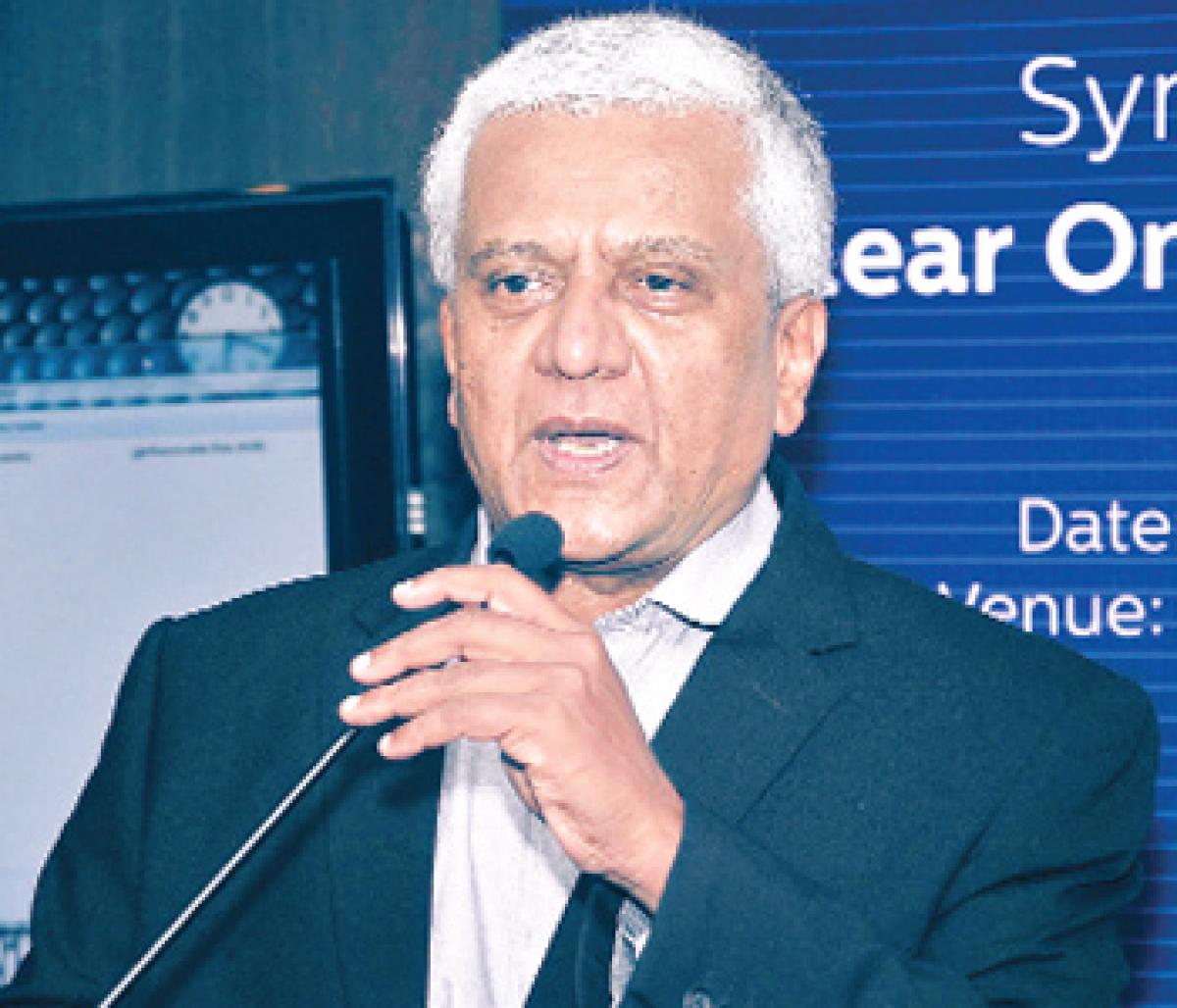Live
- GMR Airports Unveils AI-Powered Digital Twin Platform to Transform Airport Operations
- India poised to become leading maritime player: PM Modi
- Top Causes of Kidney Stones and How to Recognize Silent Symptoms
- India’s renewable energy capacity logs 14.2 pc growth at 213.7 GW
- Winter Session of Odisha Assembly adjourned sine die
- Biden calls Trump's tariff approach 'major mistake'
- After Drama Over Eknath Shinde’s Chief Minister Race, Maharashtra Cabinet Formation Faces New Tensions
- Egyptian FM, Blinken discuss recent developments in Syria
- Iran's supreme leader says Syria's developments result of US-Israeli 'plot'
- Elon Musk to Purchase $100 Million Luxury Mansion Next to Donald Trump's Mar-a-Lago, Report Reveals
Just In

The incidence of dementia continues to rise in India and it is believed that over three million people are living with the condition in the country. A World Health Organization (WHO) report on Alzheimer’s disease states that this number is expected to double in about 20 years’ time. On World Alzheimer’s day it is important to consider the role of home healthcare in the management and care of patie
The incidence of dementia continues to rise in India and it is believed that over three million people are living with the condition in the country. A World Health Organization (WHO) report on Alzheimer’s disease states that this number is expected to double in about 20 years’ time. On World Alzheimer’s day it is important to consider the role of home healthcare in the management and care of patients living with the condition.
In an endeavour to offer comprehensive and effective home healthcare solutions to patients in over 16 cities around the country, Portea Medical’s services are aimed at helping the patients regain their independence and relieve care-givers’ difficulties in extending care to patients.
Speaking to The Hans India, Dr M Udaya Kumar Maiya, Medical Director, Portea Medical said, “Care-givers to Alzheimer’s patients may need to cope with behaviour such as aggression, agitation, forgetfulness etc.
Acute cases of Alzheimer’s might also see patient experiencing paranoia or becoming hysterical. Taking care of an Alzheimer’s patient is a 24x7 job; it can be extremely stressful and take an emotional and physical toll on the care-giver. Under these extremely stressful conditions, the care-giver may decide to move the patient to an appropriate care facility.
“Home healthcare services can offer medical intervention by providing comfort at the patient’s home. This can help the patient regain some degree of independence and lessen the strain on their families,” he said and added, “It is also an established fact that home healthcare nursing lowers the rate of hospitalisation and transfers to nursing homes.”
Newer and better designed models of healthcare are being introduced in India to cater to expanding requirements. Doctors, nurses, nursing attendants and physiotherapists visit the patient’s home periodically, and medical equipment, diagnostic services and medicines can be provided at the patients’ doorstep.
“Care-givers can be at peace with the fact that their loved ones are in the able hands of professionals and are looked after with compassion and excellence. Not only do these professionals take care of the patients at home, they also provide updates to family members (who may not be present at the same location), about the condition of the patient,” said Dr Maiya.
The services provided include timely administration of oral medication, assistance in ambulation (moving the patient around) and cleaning, grooming, bathing of the patient. In addition, monitoring of the patient’s vitals (blood pressure, pulse, respiratory rate, etc.), physiotherapy, oxygen and stoma care can also be provided at home.
While Alzheimer’s has no cure, the option of home healthcare allows patients to receive appropriate care at home under the guidance of professionals.

© 2024 Hyderabad Media House Limited/The Hans India. All rights reserved. Powered by hocalwire.com







